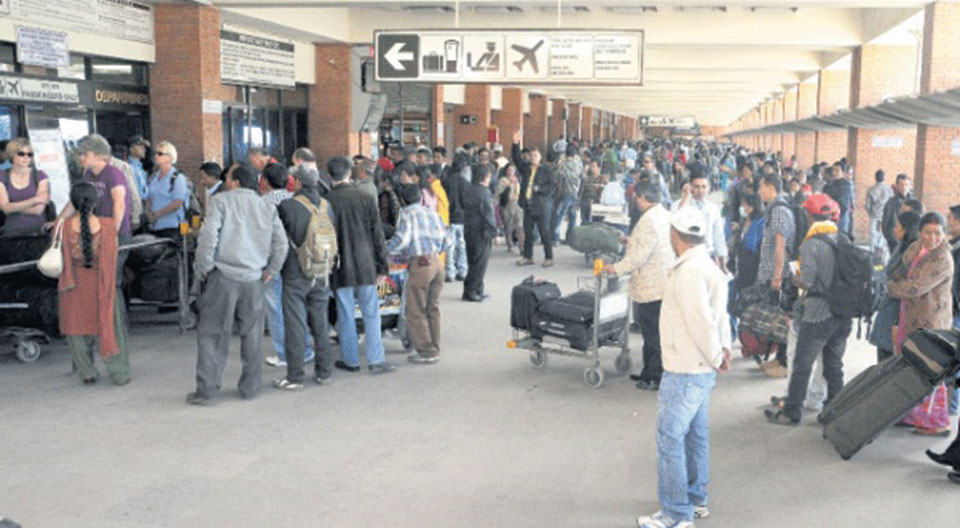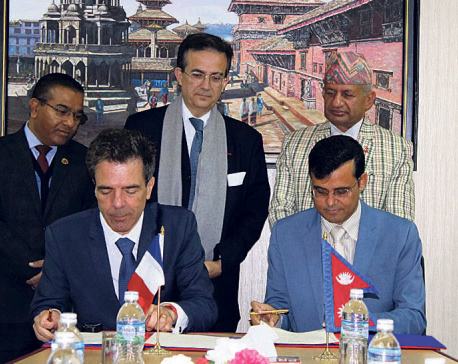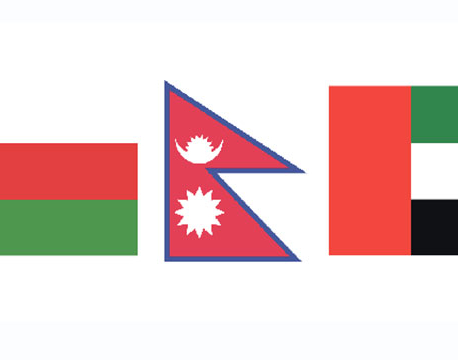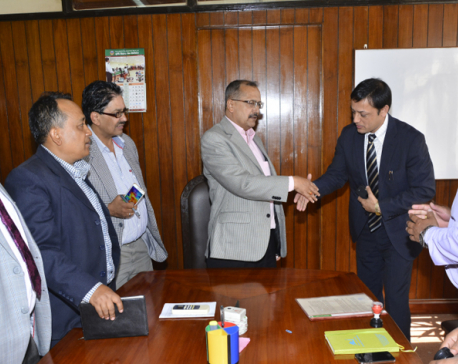
OR
Labor pact with Malaysia, a welcome step
Published On: November 4, 2018 12:20 AM NPT By: Mahendra Subedi

More from Author
Agreement depicts our prime concerns of safeguarding migrants' rights and getting more benefits from our workers in Malaysia and elsewhere
Until six months ago, departure of Nepali migrant workers to Malaysia was unhindered, but the agonies, hurdles and pains of our potential and returnee migrant workers were beyond words. However, the Memorandum of Understanding (MoU) on ‘Recruitment, Employment and Repatriation of Workers’ signed on October 29 between the government of Nepal and the government of Malaysia will hopefully make things better for Nepali workers. Thanks to a dozen plus migrants-friendly points.
More remittance
The agreement depicts our prime concerns of safeguarding migrants’ rights and getting more benefits from our workers in Malaysia and elsewhere. With the pact, Nepali migrant workers going to Malaysia need not to pay fees and 450,000 plus migrant workers there will feel a great sigh of relief because its positive impact will be seen in remittance inflow, reduced cost and better security.
This is the first time Nepal and Malaysia signed such a landmark agreement since Nepali workers started going to the latter in 2001. But Malaysia is not the first country to have signed such a historic deal. Prior to this, Nepal had inked labor agreements with seven countries-- Qatar, Bahrain, UAE, Jordon, Japan, Israel and South Korea.
This is going to be a strong tool to ensure rights of Nepali migrants and ensure their dignity. It will ensure social security; guarantee the migrants’ legal rights by making Malaysian government more accountable to our citizens working there. With this, the employer has to bear the recruitment costs charged by recruiting companies in the name of service charge.
The amount charged for medical tests and security screening will be refunded within one month once the Nepali worker arrives in Malaysia. Furthermore, the employers should bear the two-way air tickets and visa fee as well. This is truly a zero cost deal—the first of its kind in our labor migration domain.
Recruitment, employment and reintegration are three major phases of the migration process. As agreed in the deal, this shall make recruitment process systematic, transparent and disciplined by encouraging fair recruitment processes. Nepali workers are forced to do dirty, danger and difficult (3Ds) works in the destination countries, but the MoU helps shift the definition of migration workers to a safe, secured and sincere (3Ss) ones.
Mahathir’s magnanimity
People closely watching the labor migration landscape argue that the deal was the result of Malaysian Prime Minister Mahathir Mohamad’s magnanimity. Nepalis (Gurkha soldiers) are considered as the best for security jobs in Malaysia, and delay in the recruitment process was likely to invite problem even for Malaysian companies.
Though Minister for Labor, Employment and Social Security (MoLESS) Gokarna Bista termed it a historical achievement, doubts surround whether the recruiting agencies would agree to this deal. The association of the recruiting agencies on Tuesday poured cold water on this deal by asking the government to revisit the point of giving half month’s salary to the agencies, indicating the association’s non-cooperation for the implementation.
The pact has missed one of the serious issues of postmortem of the migrant workers dying in Malaysia. Postmortem and bringing back home the dead bodies need strong state intervention. Likewise, further clarity is needed with regards to women migrant workers though a pronouncement is made for giving special facilities to women migrant workers.
Way forward
It is indeed a great step toward safe migration, but its success lies in the effective implementation. The government had earlier adopted ‘free visa, free ticket’. That decision experienced lukewarm response and non-implementation from the recruitment agencies. Unlike the past, the formation of a Joint Working Group, as agreed, for the monitoring and assessment of the deal is a welcome step.
Nevertheless, smooth functioning and logistic support for the Group is vital. More importantly, acknowledgement of the Group’s recommendations matter much for the sustainability of the agreement. Proper monitoring from MOLESS and officials of Nepal’s diplomatic mission in Malaysia is essential. The government should bring civil society organizations, the media and other stakeholders on board for the monitoring job. The government should review the agreement if needed. The government should also carry out a rapid assessment of the migrant workers’ status in Malaysia.
The author is involved in research works on labor migration
You May Like This

Nepal, France establish Bilateral Political Consultation Mechanism
KATHMANDU, Dec 14: Nepal and France have held the first meeting of a Bilateral Political Consultation Mechanism after signing a... Read More...

Nepal pursues MoU with UAE, Oman on sending workers
KATHMANDU, Feb 6: The government has given impetus to the process of signing memorandum of understanding (MoU) on employment for... Read More...

ADBL, Easylink sign MoU for remittance business
KATHMANDU, Nov 4: Agriculture Development Bank Ltd (ADBL) and Easylink Remittance Pvt Ltd have signed a Memorandum of Understanding (MoU)... Read More...







Just In
- NRB to provide collateral-free loans to foreign employment seekers
- NEB to publish Grade 12 results next week
- Body handover begins; Relatives remain dissatisfied with insurance, compensation amount
- NC defers its plan to join Koshi govt
- NRB to review microfinance loan interest rate
- 134 dead in floods and landslides since onset of monsoon this year
- Mahakali Irrigation Project sees only 22 percent physical progress in 18 years
- Singapore now holds world's most powerful passport; Nepal stays at 98th












Leave A Comment